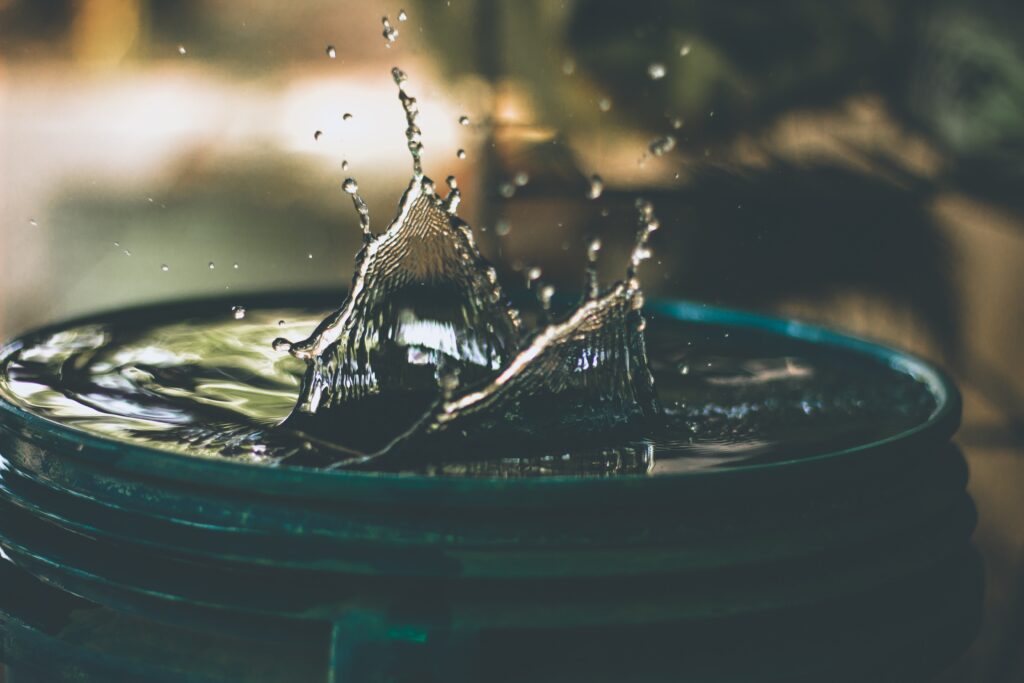In a world where sustainable living has become paramount, the hunt for the ultimate solar water heater is on. This elusive device promises to harness the power of the sun, providing an eco-friendly and cost-efficient solution for hot water needs. Whether it’s for a shower after a long day or washing dishes, the quest for the best solar water heater is essential. So, fasten your seatbelts as we embark on a journey to explore the top contenders in the market, each vying for the title of the ultimate solar water heater.
Types of Solar Water Heaters: Best Solar Water Heater
Solar water heaters are an excellent environmentally-friendly alternative to traditional water heating systems. They utilize solar energy from the sun to heat water, reducing the need for electricity or gas. There are two main types of solar water heaters: active and passive.
1. Active Solar Water Heaters
Active solar water heaters are equipped with pumps or other mechanical devices that help circulate water through the system. These systems are more complex and usually require more maintenance compared to passive solar water heaters. However, they are more efficient and are able to provide hot water even during periods of low sunlight.
2. Passive Solar Water Heaters
Passive solar water heaters, on the other hand, do not rely on mechanical devices to circulate water. Instead, they utilize natural convection or thermosiphon principles to move water through the system. These systems are simpler and require less maintenance, but they may not be as efficient as active systems.
Factors to Consider When Choosing the Best Solar Water Heater
When choosing the best solar water heater, several factors need to be taken into consideration to ensure the system meets the specific needs and requirements of the user. These factors include:
Climate and Solar Resource
The climate and solar resources of a particular area play a crucial role in determining the effectiveness and efficiency of a solar water heating system. Areas with abundant sunlight and a favorable climate are ideal for solar water heaters.
System Sizing
System sizing involves determining the appropriate size of the solar water heating system based on the household’s hot water demand. Factors such as the number of occupants, water usage patterns, and available space for installation should be considered for accurate sizing.
Energy Efficiency
Energy efficiency is an important consideration when choosing a solar water heater. Look for systems with high solar collector efficiency and insulation to minimize heat loss.
Cost and Budget
The cost of solar water heaters can vary greatly depending on the type, size, and brand. It is essential to establish a budget and compare different options to find a system that offers the best value for money.
Durability and Maintenance
Consider the durability and maintenance requirements of the system. High-quality materials and robust construction can ensure the longevity of the system, while low-maintenance components can reduce the hassle of regular upkeep.
Installation and Permits Best Solar Water Heater
Installation considerations include available space, roof orientation, and shading. Additionally, local regulations and permits may be required for solar water heater installations. Ensure compliance with these requirements to avoid any legal issues.

This image is the property of images.unsplash.com.
Top Brands and Models of Solar Water Heaters
With the increasing popularity of solar water heaters, several top brands and models have emerged in the market. Here are some of the noteworthy options to consider:
Rheem SolPak
Rheem SolPak is a well-known brand recognized for its high-quality solar water heaters. Their systems are designed to be durable, efficient, and easy to install. Rheem SolPak offers a variety of models suitable for various household needs.
Duda Solar Water Heaters
Duda Solar Water Heaters are renowned for their superior performance and reliability. They offer a comprehensive range of active and passive solar water heater systems, ensuring there is an option suitable for every user.
Sunbank Solar Water Heaters
Sunbank Solar Water Heaters are known for their innovative design and advanced technology. Their systems incorporate unique features that enhance efficiency and provide reliable hot water throughout the year.
Bosch Solar Water Heaters
Bosch is a trusted name in the field of home appliances, and their solar water heaters live up to the brand’s reputation. Bosch offers high-quality, energy-efficient systems that are designed to withstand various weather conditions.
Stiebel Eltron Solar Water Heaters
Stiebel Eltron Solar Water Heaters are known for their cutting-edge technology and exceptional performance. Their systems are designed for maximum efficiency, ensuring optimal energy savings and hot water availability.
Active Solar Water Heaters
Active solar water heaters employ various mechanisms to circulate water and heat it using solar energy. Here are some common types of active solar water heaters:
Flat Plate Collectors
Flat plate collectors are the most common type of solar collector used in active solar water heaters. They consist of a dark-colored flat plate that absorbs sunlight and transfers the heat to a fluid, usually water or antifreeze solution, which flows through the collector.
Evacuated Tube Collectors
Evacuated tube collectors have a series of parallel glass tubes that are connected to a manifold. The tubes contain a heat pipe that transfers heat from the inner tube to the fluid circulating through the manifold. This design allows for efficient heat transfer even in colder climates.
Direct Circulation Systems
Direct circulation systems circulate water directly through the solar collector to be heated. When the sun is shining, water is circulated through the collector, where it absorbs heat. This heated water is then stored in a storage tank for later use.
Indirect Circulation Systems
Indirect circulation systems use a heat transfer fluid, such as antifreeze, to transfer heat from the collector to the water in the storage tank. This fluid circulates through the collector and transfers its heat to the water in the storage tank via a heat exchanger.

This image is the property of images.unsplash.com.
Passive Solar Water Heaters
Passive solar water heaters operate without the need for mechanical pumps or other active components. Here are the two main types of passive solar water heaters:
Integral Collector-Storage Systems
Integral collector-storage systems, also known as batch collectors, are the simplest form of passive solar water heaters. These systems consist of a water tank that is directly exposed to sunlight. The water is heated within the tank itself, eliminating the need for separate solar collectors and heat transfer fluids.
Thermosyphon Systems
Thermosyphon systems use natural convection to circulate water through the solar collector and storage tank. In this system, cold water enters the collector at the bottom, gets heated by the sunlight, and rises to the storage tank located at a higher elevation. Hot water is then supplied for use from the top of the tank.
Key Components of the Best Solar Water Heaters
Solar water heaters consist of several key components working together to harness and utilize solar energy. Here are the main components of a typical solar water heating system:
Solar Collector
The solar collector is responsible for capturing and absorbing solar radiation. It can be a flat plate collector, evacuated tube collector, or any other design that efficiently converts sunlight into heat.
Heat Transfer Fluid
The heat transfer fluid is used in active solar water heaters to carry heat from the collector to the storage tank. Common heat transfer fluids include water, antifreeze solutions, or air.
Storage Tank
The storage tank stores the heated water for later use. It should be insulated to minimize heat loss and can be made of various materials, such as stainless steel or glass-lined steel.
Backup Heating System
A backup heating system is essential for periods when sunlight is insufficient to meet the hot water demand. This backup system can be an electric or gas-powered water heater.
Controls and Pumps
Active solar water heaters require controls and pumps to regulate the flow of heat transfer fluids and maintain the desired water temperature. These components ensure efficient operation of the system.
Plumbing Connections
Plumbing connections are required to connect the solar water heating system to the existing plumbing infrastructure of the building. Proper plumbing connections ensure the seamless integration of the solar water heater with the existing hot water supply.

This image is the property of images.unsplash.com.
Installation and Maintenance of Solar Water Heaters
Proper installation and regular maintenance are crucial for the efficient and long-lasting operation of a solar water heating system. Here are the key steps involved in installing and maintaining a solar water heater:
Site Assessment
A site assessment is performed to determine the best location for the solar collector and storage tank. Factors such as available sunlight, shading, and available space are considered during the assessment.
Proper Sizing and System Design
Based on the hot water demand and site assessment, the solar water heating system is sized and designed to meet the specific requirements. Proper sizing ensures optimal performance and efficiency.
Installation Process
The installation process involves mounting and securing the solar collector, connecting the plumbing, and installing the storage tank and backup heating system. It is important to follow manufacturer guidelines and local codes during the installation.
Regular Maintenance
Regular maintenance is necessary to keep the solar water heater functioning optimally. This includes checking for leaks, inspecting components, cleaning the collector, and ensuring proper fluid levels and pressure.
Troubleshooting Common Issues
In case of any issues or malfunctions, troubleshooting steps can be taken to identify the problem and resolve it. These may include checking electrical connections, inspecting valves and pumps, and assessing fluid circulation.
Benefits of Solar Water Heaters
Solar water heaters offer numerous benefits to homeowners and the environment. Here are some of the key advantages of using solar water heaters:
Cost Savings
Solar water heaters can significantly reduce energy bills by utilizing freely available sunlight. They can save homeowners a substantial amount of money in the long run, offsetting the initial investment.
Renewable Energy Source
Solar energy is a renewable resource that does not deplete over time. By using solar water heaters, homeowners can contribute to reducing dependence on fossil fuels and combatting climate change.
Environmental Impact
Solar water heaters have a minimal environmental impact compared to traditional water heating systems that rely on non-renewable energy sources. The use of solar energy reduces carbon emissions and helps preserve the planet for future generations.
Increased Property Value
Installing a solar water heater can increase the value of a property. Buyers are increasingly interested in energy-efficient and sustainable features, making solar water heaters an attractive addition to any home.
Federal and State Incentives
Many governments offer incentives and rebates to promote the adoption of solar energy systems. By installing a solar water heater, homeowners may qualify for tax credits, grants, or other financial benefits, further enhancing the return on investment.
Limitations of Solar Water Heaters
While solar water heaters offer numerous benefits, they also have certain limitations to consider. Here are some of the main limitations of solar water heaters:
Dependence on Sunlight
Solar water heaters require sunlight to operate and generate heat. In areas with low sunlight or frequent cloudy days, the performance of solar water heaters may be compromised, leading to reduced hot water availability.
Initial Cost
The initial cost of purchasing and installing a solar water heater can be higher compared to traditional water heating systems. However, the long-term energy savings and potential incentives can help offset this initial investment.
Space Requirements
Solar water heaters may require adequate roof space or other suitable areas for installation, especially for larger systems. It is important to assess the available space before installing a solar water heater.
Inconsistent Performance in Cold Climates
Solar water heaters may have reduced performance in extremely cold climates due to freezing or sub-freezing temperatures. In these situations, additional measures such as antifreeze solutions or freeze protection systems may be required to ensure proper function.
Conclusion
Solar water heaters are a sustainable and cost-effective solution for meeting the hot water needs of households. With two main types, active and passive, and a range of top brands and models available, homeowners have options to suit their specific requirements. Factors such as climate, system sizing, energy efficiency, cost, durability, and installation should be carefully considered when choosing a solar water heater. Despite certain limitations, the benefits of solar water heaters, such as cost savings, renewable energy utilization, and environmental impact, make them an attractive choice for homeowners seeking an eco-friendly alternative to traditional water heating systems. By making an informed decision and selecting the right solar water heater, homeowners can enjoy hot water while reducing their carbon footprint and contributing to a sustainable future.
